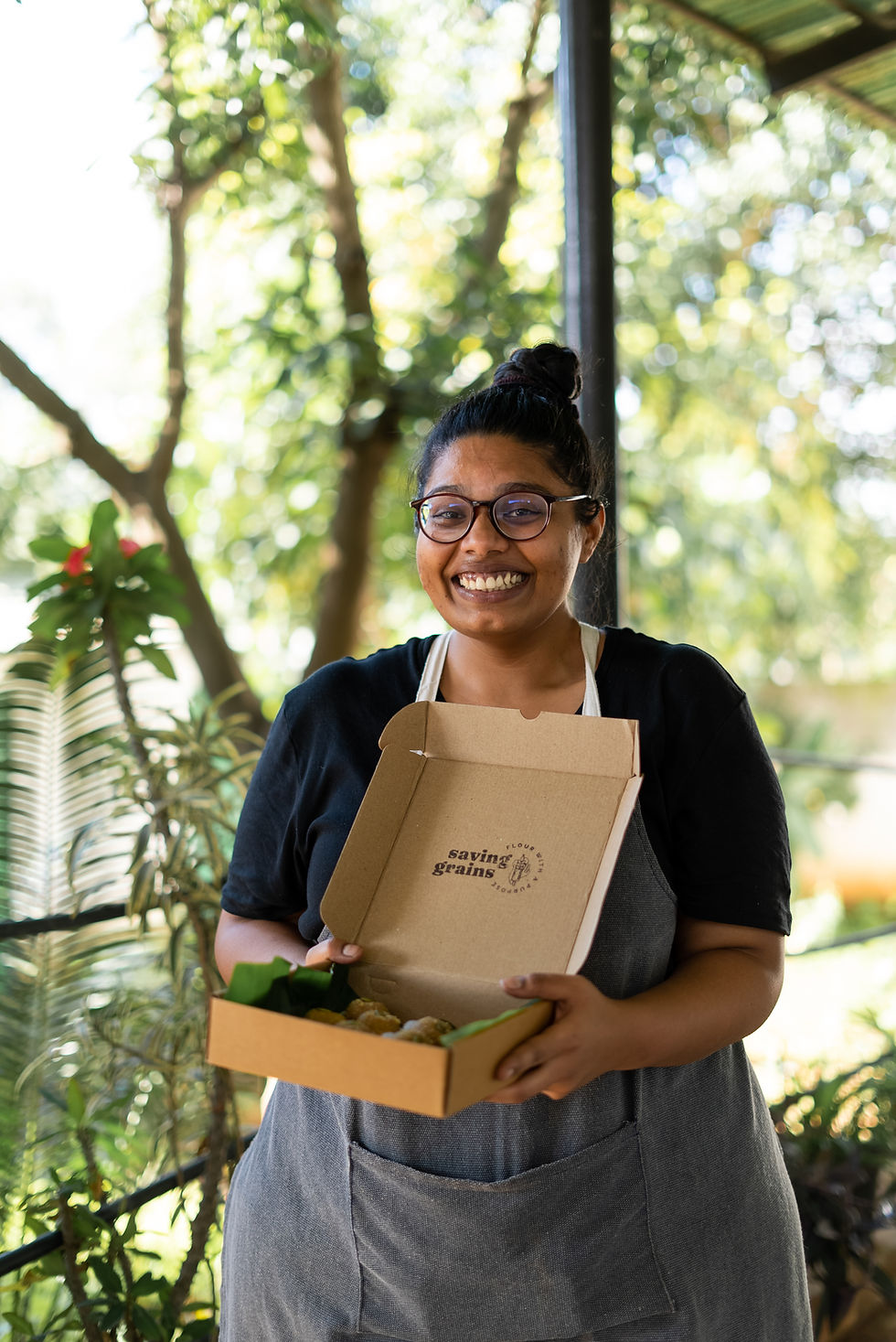Elizabeth Yorke - "Running a small business is like building a new dish — taste, season, iterate".
- Sumeet Gokul
- Feb 16, 2023
- 2 min read
Nüshu Network is bringing you stories of inspiring women entrepreneurs and startups that are truly gamechangers. Elizabeth Yorke, Chef & Researcher, Saving Grains, tells us how she's turning food waste into delicious products and what it's like to be a food entrepreneur.

NN: How did it all start for you?
Elizabeth: I’m a chef by training and love working with bread. On an internship in the Bay Area with bread historian William Rubel, I came across an interesting piece of history. Bakers and brewers worked in close proximity and shared common ingredients - Grain, Yeast, and Water. And what was more exciting was that the baker would share the stale/leftover bread with the brewer (See Toast Ale) that would be used to brew beer and the brewer would share the leftover spent grains and spent yeast with the baker that would be used in breads.
This model was really great and back in Bangalore I saw microbreweries blossoming and sourdough baking on the rise I started experimenting with spent grain, while I worked with a restaurant that prided itself on innovation.
My curiosities on building better food systems took me to the Future Food Institute in Italy where I was part of a cohort of 15 researchers from around the world. Here my focus was on circularity and sustainability in the food system and we spoke to around 160 people in food to understand what sustainability meant to them and explored different models organisations and cities adopted for circular food systems. This research gave me a great foundation and inspiration to prototype the SAVING GRAINS model.
The pandemic provoked thought on our intensive dependencies on rural-agricultural systems. There was this delicious nutritious product that was being discarded right here, in our cities: SPENT GRAIN!
NN: What do you like the most about being an entrepreneur?
Elizabeth: The term entrepreneur is quite intimidating. But I think the most exciting thing about it is being able to take an idea and see it come to life. Being a chef by profession, I’ve always enjoyed working with my hands and building new dishes - we look around for inspiration and take ideas, concepts and available ingredients and build them into flavours and textures. We’re always told to taste often, checking as the flavours develop, making sure the salt is just right and the flavour is spot on. This for me is so similar to running a small business, we’re tasting often, making sure we’re seasoning just right, constantly iterating and working with what ingredients and resources we have around us.
NN: What is the hardest part about running a startup?
Elizabeth: Making decisions, not compromising on values, and learning to filter through all the noise.
NN: What is needed for women entrepreneurs to succeed?
Elizabeth: Community and support - and a new pace to grow.
NN: What is your motivation?
Elizabeth: Each time we make a new product or when someone tastes something with brewers' spent grain and says that it’s delicious, that gives me all the motivation to know that this by-product has so much value and keeps me going!
See more about Elizabeth here.

Comments